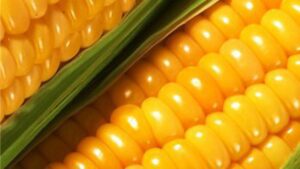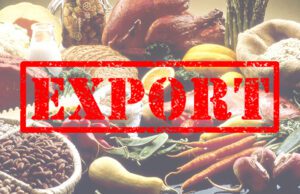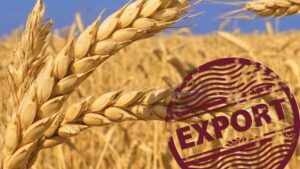
In a December report, the U.S. Department of Agriculture (USDA) increased its forecast for corn exports from Ukraine in the 2022/2023 marketing year (MY, July-June) by 2 million tons from November data to 17.5 million tons from 15.5 million tons, while its harvest forecast was reduced by 4.5 million tons, to 27 million tons from 31.5 million tons.
“Corn production in Ukraine has fallen sharply with a reduction in both the area under the crop and its yield, as the ongoing war and record fall precipitation have delayed the harvest in key producing regions: Poltava, Sumy and Cherkassy oblasts,” according to the report, which was released on the Agriculture Department’s Web site Friday.
In this case, an estimate of domestic corn consumption in Ukraine in 2022/2023 MY was reduced by 3 million tons, from 9.5 million tons to 6.5 million tons.
Also in the December report, the agency increased the forecast of food wheat exports in Ukraine in 2022/2023 MY by 1.5 million tons, to 12.5 million tons from 11 million tons, and an estimate of its yield saved at 20.5 million tons, and domestic consumption decreased by 1 million tons, to 4.5 million tons from 5.5 million tons.
In turn, the forecast of feed grain exports in Ukraine in 2022/23 MY is increased by 2 million tons, to 19.93 million tons, and its production is reduced by 4 million tons, to 34.96 million tons.
As was reported, Ukrainian agrarians harvested 68.52 million tons of the main crops from the total area of 16.75 million hectares by December 9, with 2.2 million tons harvested from 0.47 million hectares, including corn – 17.2 million tons from 2.8 million hectares (66% of cultivated area).
Since the beginning of 2022/2023 MY and until December 2, Ukraine exported 18.08 million tons of cereals, including 9.66 million tons of corn (53.4% of total supplies), 6.87 million tons of wheat (38%) and 1.48 million tons of barley (8.1%).
Since the beginning of 2022/2023 MY and until December 2, 2022, Ukraine exported 6.87 million tons of wheat (2.12 times less than the same period a year earlier), 1.48 million tons of barley (3.35 times less), 12 thousand tons of rye (6.9 times less). At the same time, the rate of corn exports was higher than last year: 9.66 million tons were exported, which is 1.62 times more than in 2021/2022 MY on the same date, while the export of flour amounted to 53.2 thousand tons (+2.1%).

Ukraine exported 7.2 million tons of agricultural products in November 2022, a 4% increase over the previous month, the Ukrainian Agribusiness Club (UCAB) said on its Facebook page on Monday.
According to the Association, it is a very good indicator, taking into account the difficulties with the operation of the grain corridor in November. During the month, it was possible to export 2.6 million tons of agricultural products, compared to 4.2 million tons in October, while the remaining volumes were exported by alternative routes.
UCAB noted that 4.7 million tons of crops were exported in November, which is 4% more than in October. By crops, 2.54 million tons of corn (54% of the total), 1.79 million tons of wheat (38%) and 376 thousand tons of barley (8%) were exported to foreign markets.
Ukraine also exported 1.3 million tons of oilseeds during this period, which is 10% more than in October. Ukraine exported 520 thousand tons of rapeseed (40%), 390 thousand tons of sunflower seed (30%) and 377 thousand tons of soybeans (29%).
UCAB also reported that exports of vegetable oils in November increased by 3% against the previous month – up to 515.8 thousand tons, 94% of which was sunflower oil (484 thousand tons) and 6% soybean oil (31 thousand tons). In turn, the export of sunflower and soybean cake and meal decreased by 21% to 342 thousand tons, including 88% of sunflower waste (300.1 thousand tons) and 12% of soybean oil (41 thousand tons).
“Problems in the operation of the “grain” corridor, caused by significant delays in inspections by the Russian side and the formation of queues of ships, force to focus again on the development of alternative routes, although this process has not stopped. However, we should take into account that the cost of logistics by alternative routes are many times higher than the cost of shipping from the ports of Odessa region, and just the sea route is the most cost-effective and efficient today,” – summarized UCAB in the message.
As previously reported by the Association, in October and September, Ukraine exported 6.9 million tons of agricultural products, in August – 4.6 million tons, in July – 3.0 million tons, in June – 2.7 million tons. According to the Ministry of Agrarian Policy of Ukraine, in May agricultural exports amounted to 1.74 million tons, in April – 0.96 million tons and in March – 0.33 million tons.
Prior to the full-scale military invasion by the Russian Federation, Ukraine used to export an average of 5-6 million tons of agricultural products per month, mainly through its maritime infrastructure in the Black Sea.

The leaders of Romania, Bulgaria and Croatia have supported the “Grain from Ukraine” initiative announced by the president of Ukraine and announced further efforts to increase existing and create new transit corridors for the export of Ukrainian grain and other agricultural products.
“Since the beginning of the war, 8.4 million tons of grains and oilseeds from Ukraine have been transited (through Romania) to consumers in the world. We expect transit exports from Ukraine to increase in the coming months,” Romanian Prime Minister Nicolae Ciuca said in a video message at the international food security summit in Kiev on Saturday.
He noted that Romania has acted very strongly in support of Ukrainian grain exports through Romanian ports and will continue working to increase connectivity between the countries by land and rail, including the recent opening of a new border crossing.
Ciuche also stressed that Romania has and will not back down from supporting Ukraine and Moldova in the energy sphere. “We will not allow Russia to plunge the region into darkness,” he said.
Bulgarian President Rumen Radev said at the summit that Bulgaria has managed to transport about 200,000 tons of grain from Ukraine across the Danube in recent months, and the country intends to continue this transportation project.
“Unfortunately, the loss of power in Ukrainian ports due to Russian shelling has made this process difficult for Bulgarian vessels,” he said.
Radev also said Bulgaria is providing fuel to Ukraine so the country can support the agricultural and transportation sectors.
Croatian Prime Minister Andrea Plenkovic also supported work on new corridors for the supply of Ukrainian products as part of the EU’s Solidarity Routes project.
“Croatia is actively joining, and will attract other ports on the Adriatic and there are opportunities for corridors along the Danube River,” said the Croatian government head.
The three leaders welcomed the extension of the Black Sea Grain Initiative for another 120 days, and the Bulgarian president urged the search for stable long-term solutions.
Exports of goods in % to the previous period in 2021 and 2022

SSC of Ukraine

KSG Agro rented an oil extraction plant (OEZ) in Dnipropetrovsk region to produce virgin sunflower oil from its own raw material.
According to the agricultural holding’s press release issued on Friday, the crude sunflower oil it produces will be exported to European Union countries by road.
It is specified that the capacity of rented crushing plant allows processing 2.5 thousand tons of sunflower seeds into 1 thousand tons of sunflower oil per month. Staff of the factory consists of 30 persons. The production is equipped with modern equipment manufactured in Ukraine in 2008.
Agroholding reminded that after the start of a full-scale Russian military invasion into Ukraine, it began exporting rapeseed and sunflower oil to Poland, Slovakia and Italy. In addition, it began pilot shipments of sunflower oil to Poland and Italy using “flexitanks” – polymeric containers designed to transport liquid cargo and installed on trucks.
The vertically integrated holding KSG Agro is engaged in pig farming as well as the production, storage, processing and sale of grain and oilseeds. Its land bank is about 21,000 hectares.
According to the agricultural holding, it is one of the top five pork producers in Ukraine.
In 2021, the holding increased its net profit in 16 times compared with 2020 – up to $20.27 million, revenue – by 44%, to $30.75 million, while increasing EBITDA by half – to $12.28 million.
The owner and chairman of the board of directors of KSG Agro is Sergey Kasyanov.